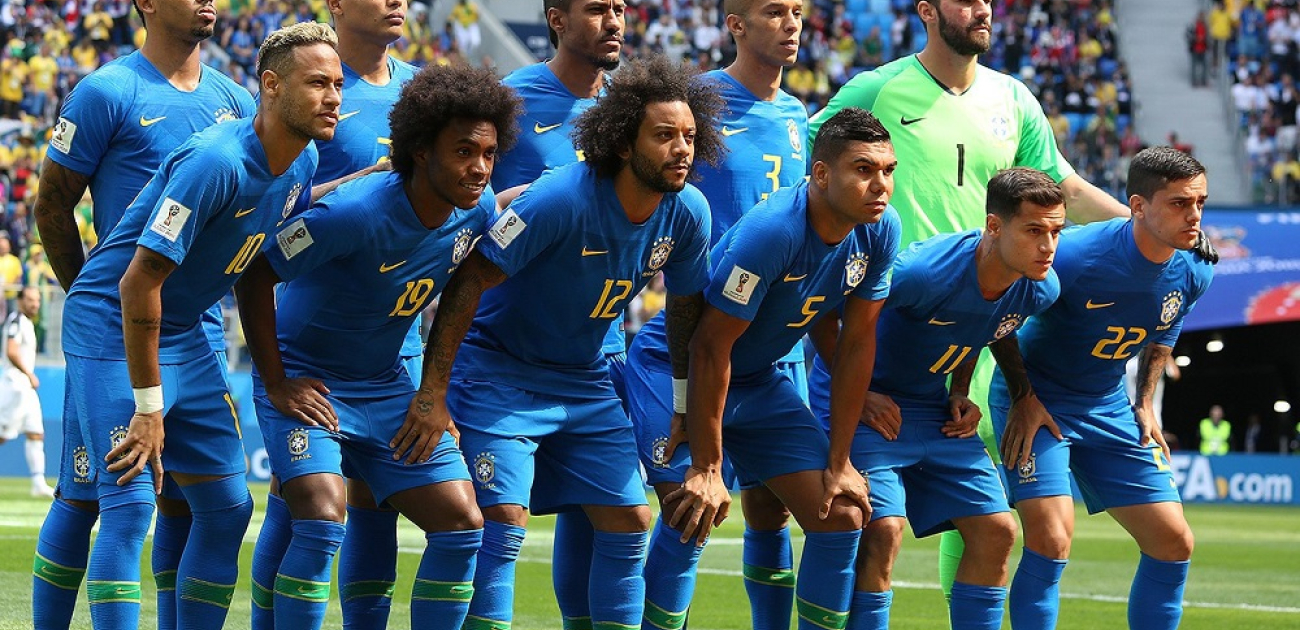A Photograph of the Football Situation in Brazil (and Projections from the Experience of Red Bull Bragantino)
Last Sunday's football game, held in the middle of Father's Day, between São Paulo and Red Bull Bragantino, represented, for many tricolor fans, a kind of revelation, motivating angry screams, on social networks, against journalist Flavio Prado, who has been claiming for some time that the team from Bragança – controlled by a transnational investor – will be bigger (or more relevant from a sporting point of view) than the three-time champions of Libertadores and Mundial.
We live in a free and democratic country, in which any citizen, especially a renowned journalist and university professor, can – and should – express his opinion.
Even if it were an possibly misplaced idea – and in essence it is not, especially considering the figuration of his proposition, in the exercise of his function –, he (Flavio Prado) would have and has the legitimacy to express and defend it; and the contradictory should be formed in a civilized and constructive way.
The same legitimacy that another journalist, Milly Lacombe, has to affirm, in a certain way inverse, that football clubs, especially Corinthians, should appoint to their board, in place of the cartolarial elective system, a board formed by black and blacks, women, LGBTQIA+ people, workers (at least, that's what I understood from reading your article available at: ( https://www.uol.com.br/esporte/colunas/milly-lacombe/2022/08 /14/corinthians-the-worst-is-yet-to-come.htm ).
It is not intended, in this text, to subscribe to one or the other opinion, or to present a contesting position in relation to any of them. The purpose is smaller: it is only intended to present a position, from an image (or photograph) of the current situation of football, and compare it with the perspectives provided by the SAF Law, in contrast to the secular associative system - and, thus, dialogue with the journalist.
It starts with the current Brazilian championship, which reveals a historical standard deviation, due to the absence of at least four (or more) teams of the most traditional in the country, which currently compete in the second national division, such as Cruzeiro, Vasco, Grêmio and Bahia.
This exceptionality does not escape the result of the end of the first round of the A series, according to the positions of the teams that integrate it: from the first place, Palmeiras, to the eleventh, Botafogo, all are or have become great (including Athletico Paranaense and the aforementioned Red Bull).
In the lower positions, there are teams that tend, due to their history, to fight against relegation or, when placed in the B series, duel for ascension, invariably transitory.
With the rescue of what was called normality, representative of the access of at least four of the six national champions that currently compete in the second division (like the teams mentioned above), there would, in theory, only be left to be disputed. , annually, by the teams considered, at this moment, "minor" - because another four would, also in theory, be passed over and relegated.
From another, more realistic angle, when analyzing the potential of teams that were not considered "elite", such as Fortaleza, Ceará, América and Atlético Goianiense, it may be possible to assume that, if they have access to resources and financing for investment in training education and sports of players, as well as in the development of the football company, will be able to maintain themselves and be protagonists in the main division of the national championship.
And, thus, pushing the big, indebted and poorly structured ones, down, who would then start to fight for permanence, instead of fighting for classification for international championships or for national titles - remember, by the way, that São Paulo, in recent years, has often walked through the intermediate zone, aiming more closely at the "Z4" than the title claim.
In other words: the organizational rearrangements that are confirmed, with the change in level of Athletico and Red Bull, in addition to the potential of other teams, indicate the beginning of a new era of Brazilian football and the end of the comfort zone of the biggest teams.
Tradition should not imply evolutionary negation, an intrinsic characteristic of humanity. The teams that know how to take advantage of this realistic perspective, will star in the next years – or decades – until others master the same techniques and catch up, belatedly, with those who started ahead – and this does not imply the denial of the fans, the fans or from history; on the contrary.
Hence the connection with the proposition of the journalist Flavio Prado (which coincides, in terms, with the vision of the president of the São Paulo Football Federation, Reinaldo Carneiro Bastos, who stated, in an event promoted by the Estadão Forum, that Red Bull was part of the list of five big ones in São Paulo): this team already has the structure, administration, resources and reliability that allow it to remain, with some security and predictability, among the main ones in the country – in permanent dispute with São Paulo itself, for example.
On the other hand, traditional clubs, extremely indebted, such as Cruzeiro, Vasco and Botafogo, who went to the bottom, made use of the instruments created by the SAF Law, less by choice, more by necessity, and, it seems, will reap the fruits quickly.
Not because they resorted to self-sacrificing supporters (or patrons) or idealist unions to bring them back; but, yes, because, finally, they had to accept the systemic failure of the associative model and impose profound structural changes.
Still others, like the aforementioned São Paulo, insist on the affirmation of tradition, supported by past glories (and a factory to create news and dreams), to produce a narrative that faces enormous difficulty to sustain itself – and that does not collapse, in the end. case of this team, just because of its fans.
Thus emerges the difficulty of facing reality and the consequent adoption of denying subterfuges. Some turn to argumentative violence, expressive of the ideological patrolling that devastates the country; others for utopian solutions, theoretically and practically unfeasible; and still others for the creation of fanciful narratives, supported by the figure of charismatic presidents.
The fusion of these positions still prevails in Brazilian football and justifies the current state of affairs, which, in a kind of essay on blindness, insists on denying reality and ends up supporting unreality – or utopia. If that weren't enough, this situation still encourages the promotion of attacks on novelties, derived from evolutionary processes, as a means of denying the representative delays of their visions or passions.
And so, only in this way, is the anger derived from the statement, representative of a certain personal opinion, justified, that Red Bull will be more relevant than São Paulo and many other traditional clubs, if they remain in their current state of lethargy. structure in which they are located.
Do you want more information?
 Rodrigo Monteiro de Castro
Rodrigo Monteiro de CastroRodrigo Monteiro de Castro is specialized in corporate and business laws, corporate transactions (M&A), capital markets and contracts.

